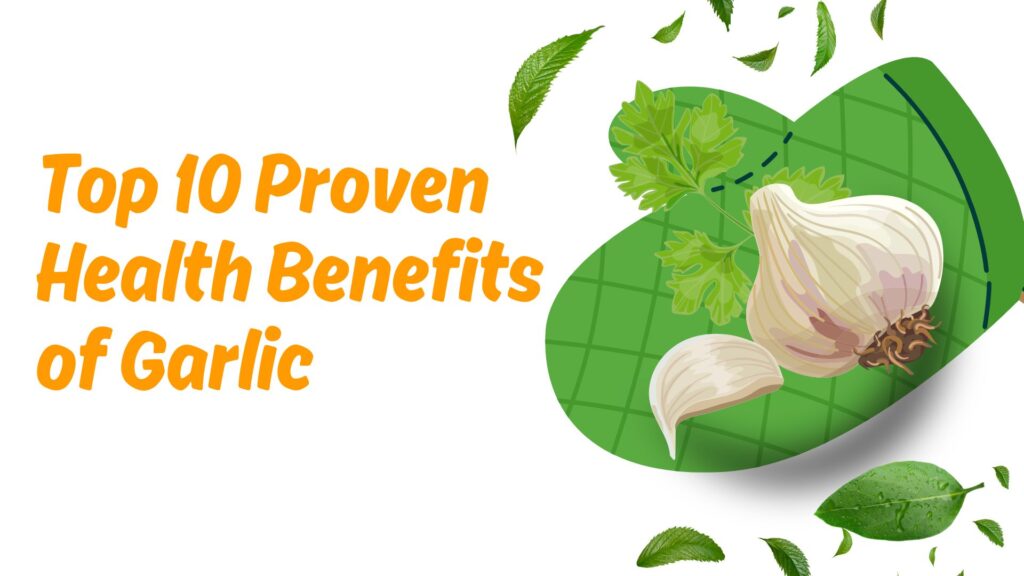In today’s global food supply chain, dehydrated vegetables have become a vital ingredient for food manufacturers, importers, wholesalers, and retailers. Whether you’re producing instant meals, soups, ready-to-eat snacks, or just looking for long-lasting, easy-to-transport ingredients, dried and dehydrated vegetables offer a farm-fresh solution that balances quality, cost, and shelf life.
This article answers one of the most common questions in bulk sourcing:
👉 How long do dehydrated vegetables last?
Plus, it offers a detailed guide on storage, benefits, and why more agri-buyers are turning to dried food as a reliable supply chain asset.
🔍 What Are Dehydrated Vegetables?
Dehydrated vegetables are fresh vegetables that have undergone a drying process to remove most of their moisture content, usually through:
-
Air drying (convection drying)
-
Freeze drying
-
Drum drying
-
Spray drying (for powders)
This post-harvest process helps preserve the vegetable’s nutrients, flavor, and color while significantly extending shelf life. The result is a lightweight, export-grade product ideal for long-term storage and global distribution.
Common examples of dehydrated vegetables include:
-
Onion flakes or powder
-
Garlic granules
-
Tomato powder
-
Carrot dices
-
Green peas
-
Spinach flakes
-
Cabbage
-
Bell peppers
-
Mixed vegetable blends
🌿 Why Choose Dehydrated Over Fresh?
Wholesalers and importers often compare fresh vegetables vs. dehydrated vegetables when planning procurement. Here’s why dehydrated food has a strong edge:
✅ Long Shelf Life
Dehydrated vegetables can last 1 to 10 years, depending on packaging, storage, and moisture removal.
✅ Lower Shipping Costs
Dried food weighs less and takes up less space, cutting your transportation costs.
✅ Zero Refrigeration
No cold chain needed—ideal for tropical, remote, or logistics-challenged markets.
✅ Farm-to-Port Efficiency
Dehydrated vegetables are processed close to the source, which reduces post-harvest loss and ensures better traceability.
✅ Bulk Supply Flexibility
Buy in bulk and store in warehouses or commercial kitchens without fear of spoilage.
⏳ How Long Do Dehydrated Vegetables Last?
This is one of the most frequently asked questions:
“How long do dehydrated vegetables last in storage?”
🧂 General Shelf Life Estimates:
| Vegetable Type | Shelf Life (Vacuum Sealed) | Shelf Life (Airtight in Pantry) |
|---|---|---|
| Onion (flakes/powder) | 10–15 years | 1–2 years |
| Garlic (granules/powder) | 8–10 years | 1–2 years |
| Carrot (diced/slices) | 8–10 years | 1–2 years |
| Tomato powder | 5–8 years | 1–2 years |
| Bell peppers | 7–10 years | 1–2 years |
| Green peas | 5–7 years | 1–2 years |
🛑 What Affects Shelf Life?
Several factors can reduce or extend the life of dehydrated food:
-
Oxygen exposure
-
Humidity
-
Temperature
-
Packaging quality
-
Storage environment
🧴 Best Storage Practices
To maximize the longevity of your dried vegetables:
-
Use Mylar bags with oxygen absorbers
-
Store in a cool, dark, dry location
-
Avoid exposure to heat or light
-
Always reseal packaging after opening
Bulk importers should consider vacuum-sealed drums or double-layer bags with desiccants to ensure stability during transit and warehousing.
📦 Packaging Options for Export
When exporting dehydrated vegetables, especially in bulk, the right packaging is essential. Common formats include:
-
25–50 kg multi-layer paper or poly bags
-
HDPE drums with inner liners
-
Vacuum-sealed pouches (1–5 kg)
-
Retail-ready sachets (for B2B buyers)
As a global exporter, we ensure all products meet food safety regulations in target countries, complete with:
-
Batch traceability
-
Phytosanitary certificates
-
Moisture content certificates
-
Third-party lab test reports (on request)
🌎 Global Market Demand for Dried and Dehydrated Vegetables
Demand for dehydrated food has risen sharply in:
-
North America – especially for soups, seasonings, and meal kits
-
Europe – health-conscious and organic-focused retail segments
-
Middle East – ready-to-cook and spice blends
-
Asia-Pacific – snacks, noodles, and convenience meals
🔥 Top Use Cases
-
Instant noodles & ramen
-
Canned soups & broths
-
Dry spice mixes
-
Emergency food kits
-
Military rations
-
School meal programs
-
Airline and ship catering
If you’re a bulk buyer, these applications represent strong and growing demand channels to explore.
🧪 Quality Control in Dehydrated Vegetables
Export-grade dehydrated vegetables must meet strict food safety and quality standards. Our process includes:
✅ Pre-Harvest Sourcing
-
Farm contracts with traceable inputs
-
GAP-certified farms (Good Agricultural Practices)
✅ Post-Harvest Processing
-
Cleaning, slicing, drying, and sorting
-
Metal detection and optical sorting for impurities
✅ Lab Testing
-
Moisture content (usually below 7%)
-
Microbial safety (E. coli, Salmonella, etc.)
-
Pesticide residue analysis
-
Heavy metal screening
✅ Certifications
We can provide the following certifications upon request:
-
HACCP
-
ISO 22000
-
USDA Organic / EU Organic
-
FSSAI (India)
-
Kosher / Halal
💼 Buying Guide: What to Ask When Sourcing Dehydrated Vegetables
To make the right decision when buying dehydrated or dried vegetables, always ask your supplier:
-
What’s the moisture content of the final product?
-
Is it air-dried, sun-dried, or freeze-dried?
-
Do you provide third-party lab reports?
-
Can you provide custom blends or private label packaging?
-
What are your minimum order quantities (MOQs)?
-
What is the shelf life and recommended storage method?
-
Do you offer FOB or CIF pricing?
🏷️ Bulk vs. Retail-Ready Dehydrated Vegetables
Bulk Options:
-
Ideal for food processors, commercial kitchens, and wholesalers
-
Usually packed in sacks or drums
-
Lower cost per kg
-
Often unbranded or semi-branded
Retail Options:
-
Small sachets, jars, or zip-lock packs
-
Ready for supermarket shelves
-
Higher margin, ready-to-sell
-
Custom labeling possible for private label clients
Whether you’re importing for industrial use or consumer markets, we can customize packaging and branding to suit your needs.
🌐 Why Work With a Trusted Exporter?
Choosing a reliable dehydrated vegetable exporter helps you ensure:
-
Consistent quality
-
Timely shipments
-
Compliance with local import laws
-
Lower rejection rates at customs
-
Better margins through efficient sourcing
We handle everything from farm to port, ensuring your product is:
-
Quality-assured
-
Cleaned and processed hygienically
-
Packed for long-term storage
-
Traceable by batch and origin
📊 Dehydrated Vegetables vs. Frozen Vegetables
| Feature | Dehydrated | Frozen |
|---|---|---|
| Shelf life | 5–15 years | 6–18 months |
| Requires refrigeration | ❌ | ✅ |
| Shipping weight | Light | Heavy |
| Cooking prep time | Fast rehydration | Full thawing |
| Ideal for | Dry mixes, snacks, ready meals | Fresh-cooked dishes |
💬 Frequently Asked Questions (FAQs)
❓How do you use dehydrated vegetables?
Just add hot water and let them soak for 5–15 minutes. Ideal for soups, stews, rice dishes, and instant meals.
❓Are dehydrated and dried vegetables the same?
Yes, both refer to moisture-removed vegetables. The terms are often used interchangeably, but “dehydrated” usually refers to controlled, industrial drying methods.
❓Do dried vegetables lose their nutrients?
There is some loss during drying, especially Vitamin C. However, most nutrients like fiber, potassium, and flavor compounds are retained, especially in low-heat or freeze-dried methods.
❓Can you store dehydrated vegetables in plastic containers?
Yes, if they’re airtight and kept in a cool, dry place. For long-term storage, Mylar bags with oxygen absorbers are preferred.
🛒 Ready to Source Dehydrated Vegetables in Bulk?
As a global agriculture exporter, we supply premium-quality dehydrated vegetables to importers, wholesalers, food manufacturers, and retailers across the world.
Whether you’re sourcing dried onion, garlic powder, mixed vegetable flakes, or custom spice blends, we ensure consistent, export-grade quality and timely delivery.
📍 Origin: India
📦 MOQ: 1 MT
🚢 Delivery: FOB / CIF as per requirement
📃 Documentation: Full export paperwork, lab tests, and traceability reports included
👇 Request a Quote Today
Contact us for pricing, product samples, or custom specifications for your next shipment of dehydrated vegetables.
Let us help you create a reliable, high-quality, long-shelf-life food supply—farm to port.



